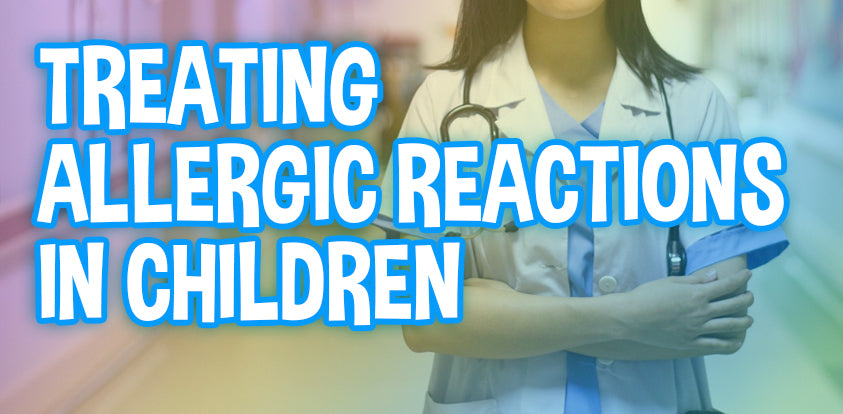
Avoiding and Treating Allergic Reactions In Children
Share

Food allergies in children is something that isn't thought about often unless you live with someone suffering from the condition. Some food allergies can be slight and only appear as a skin rash, while others can lead to life-threatening anaphylaxis. How can you ensure your children are only eating safe foods? What do you do if allergies develops? We'll cover it all in our guide to avoiding and treating food allergies for kids.
Common Food Allergies
Common triggers include peanuts, tree nuts, cow's milk, egg, soy, wheat, fish, and shellfish. There are other allergies in children that are more rare. For instance, my two-year-old son had a severe allergic reaction to strawberries last month that meant bolting to the ER for an exceedingly pricey dose of epinephrine.
You'll need to be constantly aware of what you're feeding children because anything can trigger a severe response. It's not a bad idea to keep an epi-pen or even just some Benadryl around the house even if nobody is suffering from food allergies because allergies can change over time. It's a science that is only barely understood but it affects millions.

Do Restricted Diets Help?
I've met a few moms that swear by keeping away from allergenic foods during pregnancy and breast-feeding. None of their kids have a food allergy, so it must've worked! Unfortunately, that is the textbook definition of confirmation bias. The science does not back up this line of thought.
Breast-feeding is the best way to feed your child. It makes them more resilient to disease and seems to reduce things like wheezing, eczema, and lactose intolerance. Your baby needs milk, and you shouldn't deny them just because you enjoy a handful of peanuts.
Taste Testing
Feeding allergenic food to your child might seem like a terrifying prospect, but the truth is that the earlier they're able to try it the less likely they are to develop an allergy to that food in the future. Between four to six months, you should start introducing your child to single-ingredient infant foods, typically including fruits (apples, pears and bananas), vegetables (green vegetables, sweet potatoes, squash and carrots) and cereal grains (rice or oat cereal) one at a time.

Food can be introduced this way every 3 to 5 days as you deem appropriate. This slow process gives parents or caregivers a chance to identify and eliminate any food that causes an allergic reaction. It is always fun to watch a baby's reaction to new food. It is a video category that generates billions of views every month on YouTube... But you will need to be prepared if the taste test goes south.
Even if it doesn't go totally south, you might need some help from our teething help blog.
When To Seek Help
You do not want to wait until your child starts turning blue to start the trip to the hospital. The first signs of anaphylaxis is usually a rash, followed by obvious swelling of the lips and tongue. If your child's respiration seems labored then you will want to break out the epi-pen or head to the hospital as soon and as safely as humanly possible.
There are times that the child's allergic reaction signs will stop at a rash, but it is a fine line to ride. I'd highly suggest caution, particularly if your child has just eaten a food that is notorious for its allergenic properties.

Avoiding Allergens
There is no way to completely avoid allergens, but luckily most of the allergic reactions we experience in our day-to-day lives will be so minor that you'll hardly notice anything different. My spouse gets a stomach ache after eating crab, I tend to get a flare up of eczema when I consume too much soy.
It isn't a sexy thing to talk about, but it's all part of being in tune with your body. You'll also need to be in tune with your kid's food allergies. Do they seem a bit red after eating wheat? It happens, and you'll want to learn to avoid those foods in the future to avoid aggravating any allergy issues.
Final Thoughts
Our grape scented foot deodorizer spray and grape scented foot powder are sure to please those careful noses with their all natural ingredients. It should be noted that allergic reactions can be triggered by anything from a new fabric conditioner to a mysterious outdoor plant.
If the problem is recurring then you will want to speak to a professional allergist that has attended medical school with an additional three years of residency. It might cost a pretty penny, but know exactly what your kid's allergy triggers are is a great step in avoiding them.
